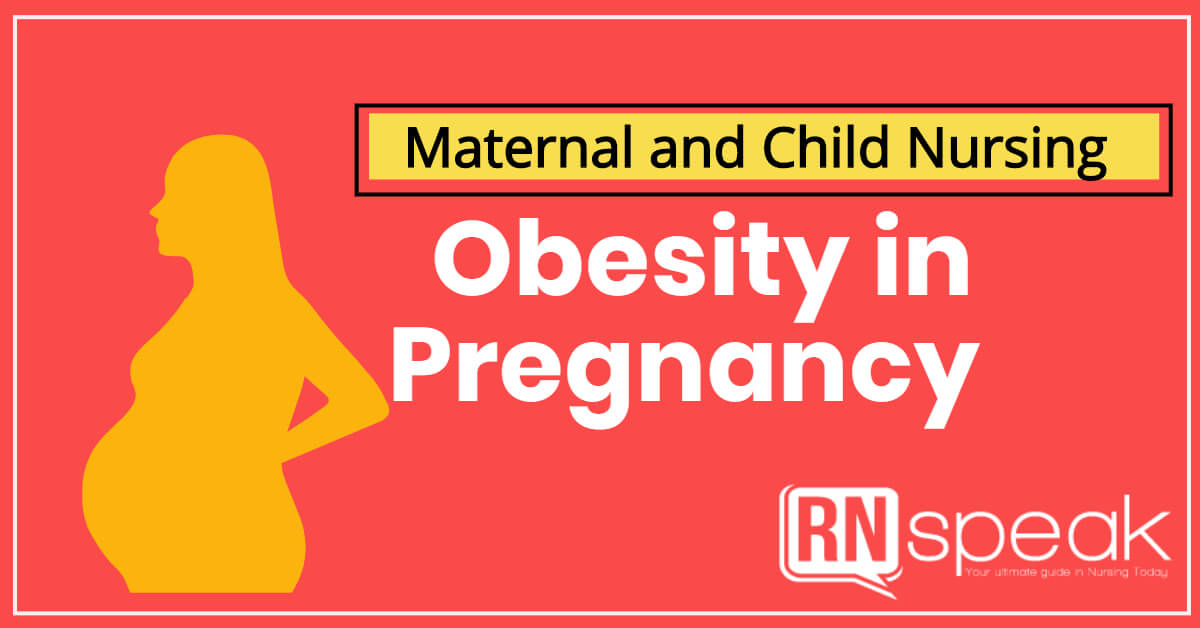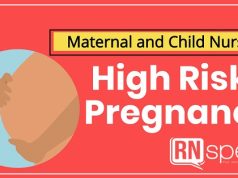Obesity as defined is the abnormal accumulation of fat cells in the visceral and subcutaneous portions of the body. During pregnancy, women are more likely to eat for two as they may have cravings for food. Gaining weight may be attributed to the demand of the growing fetus and the accumulation of maternal stores. However, the what-so-called gestational weight gain which is more than expected is becoming a complication in pregnancy today, especially if an already obese woman becomes pregnant.
There are approximately 1 out of 5 pregnancies that a woman becomes obese and they are considered under the category of high-risk pregnancies. These pregnant women are more likely to have complications like hypertension, gestational diabetes, postmature infants, cases of cholecystitis, and some difficulty in labor because of the baby’s large size for its gestational age. In some cases, health professionals may have also the difficulty in auscultating the fetal heart tone and in identifying the position and size of the fetus during prenatal visits.
There are several studies assuming the correlation between maternal diet and the health of the fetus. That is why the essence of proper nutrition and good lifestyle habits prior to pregnancy provide great influence in the well being of both the mother and the growing fetus.
The acceptable weight gain during the first trimester is within 2 – 4 pounds or roughly about 1 pound per month, while in the second and third trimester, the normal gain in weight should be less than one pound per week. All in all, the recommended weight gain is between 25- 30 pounds, which is distributed throughout the course of pregnancy.
The following nursing management encompasses the basic dietary and lifestyle adaptations to avoid obesity during pregnancy:
- Assess her previous nutritional status and eating preferences
- Also, assess for the presence of vices like smoking and alcohol abuse and if there is the presence of illnesses like diabetes, hypertension, or cardiac diseases.
- Check and monitor her weight prior to pregnancy and during prenatal visits, check for consistency on weight gain pattern, and any increase or reduction in weight.
- Educate clients of the foods necessary during pregnancy like foods rich in iron, iodine, fiber, folic acid, calcium, and phosphate, as well as other vitamins and minerals.
- Plan diet modifications considering her cultural, financial, and nutritional aspects. The recommended caloric intake of a pregnant woman should be within 2500 calories.
- In terms of cravings and overeating, adjustment for adding extra calories or food choices that include the food that she is craving might be helpful; in order for her not to cheat in her diet.
- Emphasize to her that the important guideline in food preferences during pregnancy is its quality instead of its quantity.
- Emphasize that “dieting” during pregnancy is a no-no but proper nutritional diet is the key.
- Educate clients regarding what to avoid: like foods high in caffeine which is related to some incidence of structural anomalies and infertility and foods with artificial sweeteners; since a large intake of these may be attributed to some harmful effects on the growing fetus.
- Encourage her to have at least a minimum of 30-minute walk per day or any activity program fit her health status it could be yoga and some stretching activities.
- Diet modifications may be stressful for some and may lead to some resistance, you may introduce some behavior modification and relaxation techniques; modifying the diet of the entire family in some cases might also be helpful.
Reference:
Pillitteri, A. (1992). Maternal and Child Health Nursing: Care of the Childbearing and Childrearing Family Philippine Edition. Merriam & Webster, Inc.








